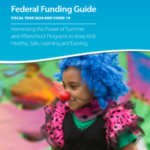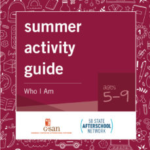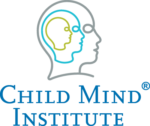COVID-19
The GIANT Room in collaboration with Lysol® has created a free digital-resource series of Minilab Science Kits accessible to educators, co-designed by teachers, families, and students. The HERE for Healthy Schools program is intended to promote healthy learning about microbes and germs to reduce school absenteeism.
Activities are designed for children in grades 1 and 2.
The Annie E. Casey Foundation has produced its 35th edition of the KIDS COUNT Data Book. The report examines unprecedented declines as a result of the COVID-19 pandemic’s effect on children and education. The 2024 KIDS COUNT Data Book assesses recent trends in child well-being and provides data profiles by state. National data profiles are available in both English and Spanish through their website: aecf.org/resources/2024-kids-count-data-book
This 2020 Federal Funding Resource Guide, published by the National Summer Learning Association provides helpful resources about the federal funds that can be accessed now to support summer learning and enrichment as a critical bridge into a new school year during COVID and beyond.
The GSAN Summer Activity Guide is a suite of fun and engaging activities and challenges designed specifically for this atypical summer.
Friendzy is a comprehensive program designed to change school culture by offering vital social and emotional learning lessons (SEL) to proactively address aggressive behavior, reduce stress, equip with healthy relationship skills, and improve focus and academic performance, which will increase resiliency for success in school and in life.
The following resources offer tips for families including age-appropriate responses to common questions, a guide to self-care, and activities for young children experiencing social distancing.
Most California K-12 schools, colleges, and universities are closing or moving online during the COVID-19 outbreak. This page contains questions and answers about the status of California schools.
Resources for Californians who have been financially affected by COVID-19.
This page lists the phone numbers of all the organizations you can call for support during the COVID-19 pandemic. There are hotlines for youth and teens, veterans, first responders and law enforcement, older Californians, deaf and hard of hearing individuals, services for substance use disorders, LGBTQ individuals, suicide hotlines, and more.
Widespread stress and anxiety regarding COVID-19, compounded by the economic distress due to lost wages, employment and financial assets; mass school closures; and necessary physical distancing measures can result in an increase of stress-related health conditions. The California Surgeon General has a simple guide with things you can do every day, at home, to help support your mental and physical health, utilizing six key strategies.
News of the coronavirus COVID-19 is everywhere, from the front page of all the papers to the playground at school. Many parents are wondering how to bring up the epidemic in a way that will be reassuring and not make kids more worried than they already may be. Here is some advice from the experts at the Child Mind Institute.
Kids, this comic is for you. It’s based on a radio story that NPR education reporter Cory Turner did. He asked some experts what kids might want to know about the new coronavirus discovered in China.






